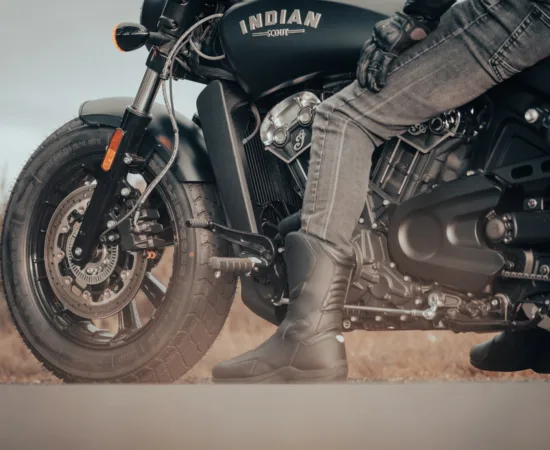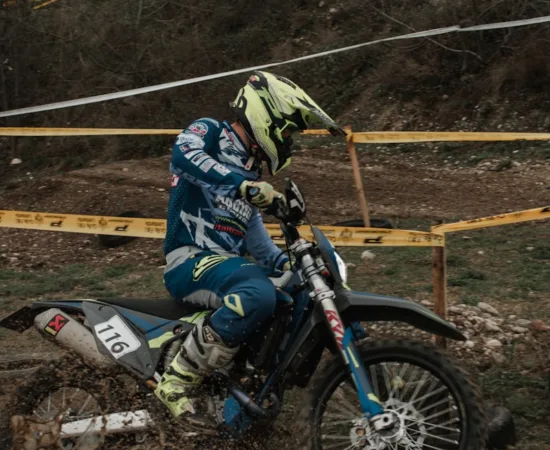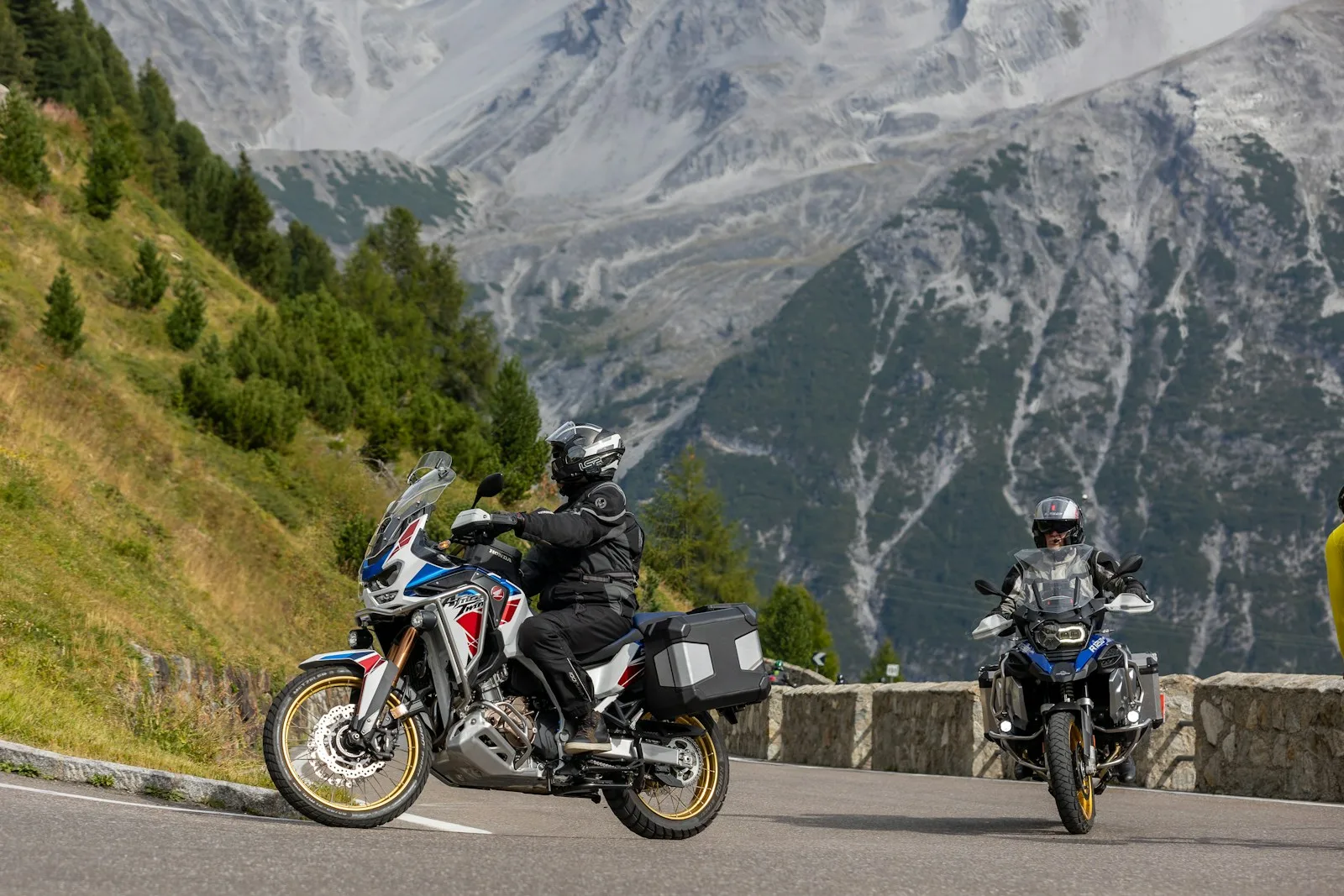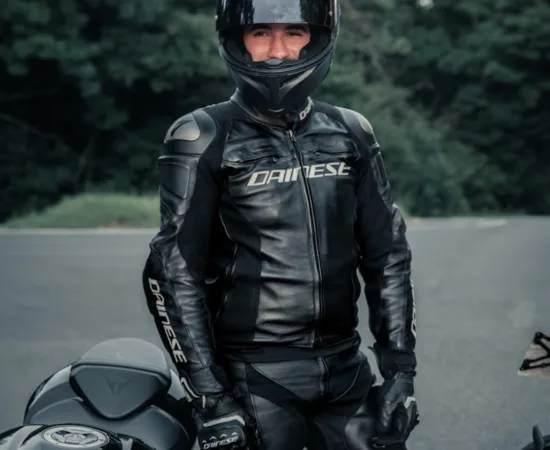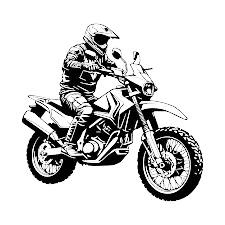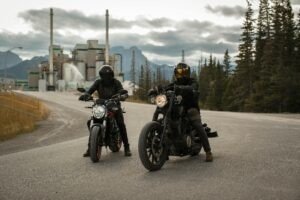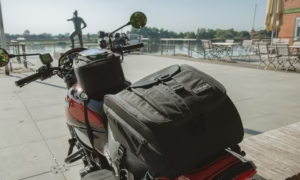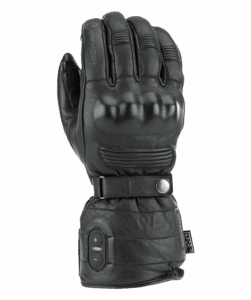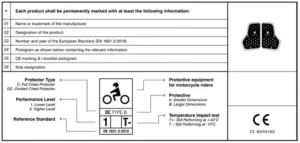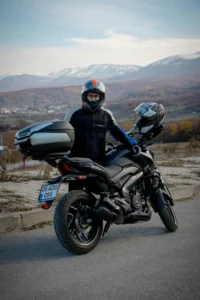Motorcycle Riding Jackets — Best Picks & Buying Guide
Motorcycle riding jackets aren’t just about style or comfort — they are your primary upper-body protection when things go wrong. Your shoulders, elbows, chest, and back are highly exposed in a crash, and without proper gear, even a low-speed slide can mean serious injury. Quality riding jackets shield against abrasion, impact, weather, and fatigue, all while allowing freedom of movement on the bike.
Whether you’re commuting across town or riding across countries, the right motorcycle riding jacket can mean the difference between walking away and being sidelined.
Why You Shouldn’t Ride Without Motorcycle Riding Jackets
Many riders stick to casual leather or fashion jackets, thinking they’re “tough enough.” Here’s why that’s a mistake:
No abrasion resistance – Fashion leather or textiles can shred in less than a second during a slide.
No impact protection – Without CE-rated shoulder, elbow, and back armor, your joints and spine are exposed.
Poor weather protection – Casual jackets absorb water and offer no windproofing.
No heat resistance – Can’t handle engine or exhaust heat in close proximity.
Motorcycle riding jackets are purpose-built with abrasion-resistant fabrics, integrated or removable armor, reinforced stitching, and weatherproof or ventilated designs — all tailored to real-world riding needs.
Types of Motorcycle Riding Jackets
Touring Jackets
Use: Long-distance, all-weather touring.
Features: Waterproof liners, thermal layers, ventilation zips, multiple pockets, CE armor.
Pros: All-season versatility, high comfort.
Cons: Bulkier than lightweight jackets.
Adventure / ADV Jackets
Use: On/off-road, long expeditions.
Features: Heavy-duty textiles, cargo pockets, abrasion panels, full armor coverage.
Pros: Maximum protection and ruggedness.
Cons: Can be hot in slow, humid rides.
Racing / Track Jackets
Use: Track, sport riding.
Features: Premium leather, CE Level 2 armor, external sliders, aerodynamic fit.
Pros: Superior abrasion resistance.
Cons: Less ventilation, heavier than mesh or textile.
Urban / Commuter Jackets
Use: City commuting, short rides.
Features: Lightweight leather or textile, slim armor, casual style.
Pros: Stylish on and off the bike.
Cons: Limited weather adaptability.
Mesh Summer Jackets
Use: Hot-weather riding.
Features: High-flow mesh panels, CE armor, abrasion reinforcement.
Pros: Maximum airflow and comfort in heat.
Cons: Minimal cold-weather usability.
What to Look for in a Good Motorcycle Riding Jacket
CE Certification – For armor in shoulders, elbows, and back.
Abrasion Resistance – Leather, Cordura, or reinforced textiles.
Reinforced Stitching – Double or triple safety stitching.
Ventilation – Zips or mesh panels for airflow.
Weatherproofing – Waterproof membranes for rain.
Fit & Comfort – Articulated sleeves and stretch panels.
Armor Positioning – Adjustable pockets for armor.
Visibility – Reflective panels or high-visibility colors.
How to Pick the Right Motorcycle Riding Jacket for Your Ride
Ask yourself:
Where do you ride most — city, highway, off-road, track?
What’s the climate — hot, cold, wet, mixed?
Do you need off-bike style or pure function?
Then choose:
Touring jacket – for all-season long-distance comfort.
ADV jacket – for mixed-terrain adventure.
Racing jacket – for track and high-speed road riding.
Urban jacket – for daily commutes with style.
Mesh jacket – for summer and hot climates.
Care and Maintenance of Motorcycle Riding Jackets
Follow manufacturer cleaning instructions — some fabrics need special care.
Remove armor before washing or conditioning.
Leather – condition every few months to prevent drying.
Textile – air dry and avoid dryers to protect coatings.
Reapply waterproofing spray for textile jackets as needed.
Fit, Sizing & Comfort Tips — Read Before You Buy
Fit First, Then Features
Jacket should fit snug but allow full movement.
Armor must stay in place when riding position is assumed.
Sleeves should cover wrists in riding position.
How to Measure Right (If Buying Online)
Measure chest and arm length wearing your usual base layer.
Compare with brand sizing — some run small or large.
Consider extra room if you plan to layer in winter.
Material Considerations
Leather – Best abrasion resistance, classic style.
Textile – Lightweight, weather versatile.
Hybrid – Leather in impact zones, textile for flexibility.
Seasonal Fit Tips
Hot climates – prioritize ventilation.
Cold/wet climates – go for thermal liners and waterproof membranes.
Mixed climates – choose removable liners for flexibility.
Quick Recap — Motorcycle Riding Jackets Fit Tips Checklist
Measure chest and arms accurately.
Ensure armor stays in place.
Select material for your climate and riding style.
Choose ventilation or waterproofing as needed.
Check sleeve length in riding position.
goodgearhub ProTips for Motorcycle Riding Jackets
Never ride without a jacket — even short trips carry risk.
Upgrade stock back protector to CE Level 2.
Keep both summer and winter jackets for year-round riding.
Add chest armor for extra safety.
Choose bright colors or reflective panels for visibility.
